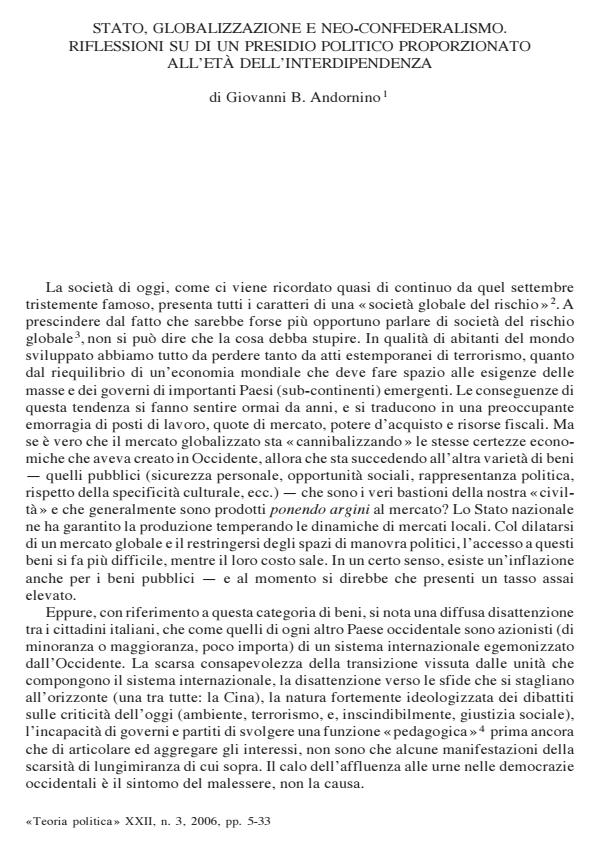State, Globalization and Neo-Confederalism. Reflections on a Political Entity Fit for the Age of Interdependence
Journal title TEORIA POLITICA
Author/s Giovanni B. Andornino
Publishing Year 2006 Issue 2006/3
Language Italian Pages 29 P. 5-33 File size 165 KB
DOI
DOI is like a bar code for intellectual property: to have more infomation
click here
Below, you can see the article first page
If you want to buy this article in PDF format, you can do it, following the instructions to buy download credits

FrancoAngeli is member of Publishers International Linking Association, Inc (PILA), a not-for-profit association which run the CrossRef service enabling links to and from online scholarly content.
The essay aims at setting a conceptual and historical framework in order to understand the relationships between phenomena as complex as modern states, globalization, and inter- and supranational institutions. Moving from the remark that in current societies the cost of public goods is increasingly higher, the author analyzes in broad historical terms the emergence of the modern territorial state, especially focusing on the role of the military, of fiscal imposition, and the progressive inclusion of the citizenry. While setting the institutional premises of the development of capitalistic economy, the state has recently been facing the rise of worldwide exchanges, which is usually referred to as «globalization». Such process lays on positive rational expectations, and has been fostered by long-run technological progress and the state itself, which is however currently dealing with the need of a re-definition on a larger scale. The declining capacity of nation-state institutions and the emergence of a plurality of cultural allegiances seem to pave the way towards the rise of a global neo-confederalism, understood with the label of a «governance towards a government» and based on several political centers at different levels.
Giovanni B. Andornino, Stato, globalizzazione e neo confederalismo. Riflessioni su di un presidio politico proporzionato all'età dell'interdipendenza in "TEORIA POLITICA" 3/2006, pp 5-33, DOI: